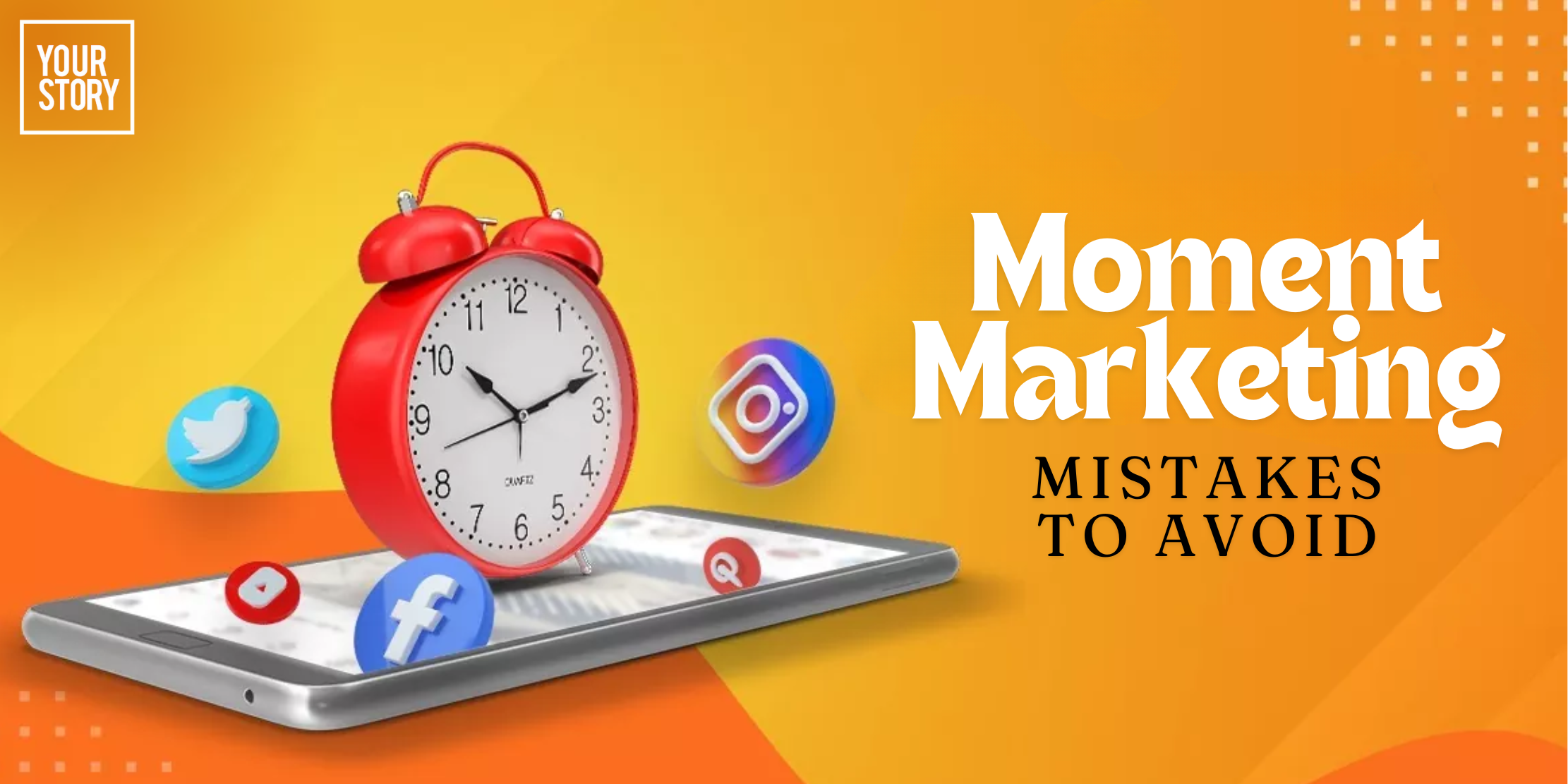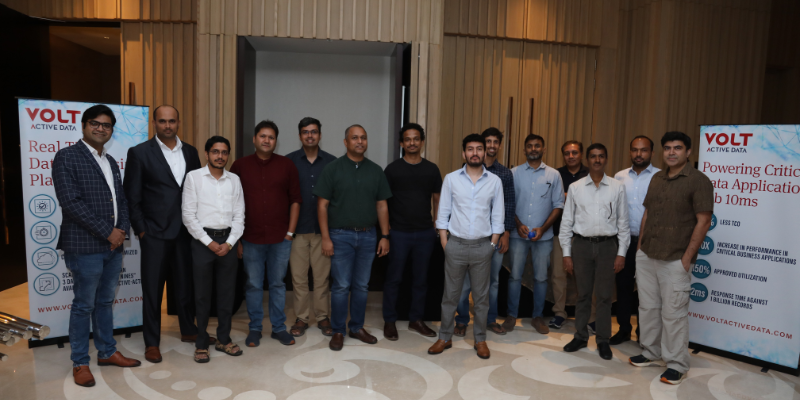Ankur Pegu, Arvind Saraf, Sundeep Kapila and Devashish Saini,Founders- Swasth India Services
Saturday April 18, 2009 , 11 min Read

A Quartet usually bears great symbolism whether it be the fields of arts, music, religion or fact. There were the four Beatles, the Fantastic Four, the Four Noble Truths, and now there is the foursome from Swasth. Yourstory interviewed Arvind Saraf, Ankur Pegu, Sundeep Kapila, and Devashish Saini, four young Indian Entrepreneurs with an idea and the zest to see their dreams come to fruition. They explained their idea and what it means for the rest of India - "The vision of Swasth India is to build a healthy and resilient India by ensuring health security and equity to all."

They have set themselves a mission for the coming 5 years – “to ensure access to affordable and quality health services to 15 million low-income persons by 2015.” They plan to achieve this by building a social business to improve the health of low income households in India – both rural and urban slums through implementing effective disease prevention, health promotion activities and ensuring access to affordable and quality healthcare services. “We approach to solve this problem by working with community-based organizations to design self-sustaining, comprehensive and customised health systems and support implementation by providing a range of technical services like provider management, quality monitoring, claims processing, drug supply chain, information management and project management.”
In order to design and implement such a comprehensive health system, Swasth India plays the role of a service integrator and works with different service providers across the health value chain of doctors, labs, pharmacies, hospitals, nursing homes, drug companies, insurance companies and brings them on a common platform to deliver quality services to low income households through the community-based organization.Their idea is different from prevalent and existent market norms. The essential differences were pointed out by them. "there are three key differentiators to our model”, point out the four young social entrepreneurs.
“Firstly, to build a comprehensive health system rather than looking at parts of the value chain like most other solutions, e.g. micro-insurance products, low cost hospital chains, low cost drugs companies. This enables us to build low cost and low overhead system through integration across various aspects of healthcare – preventive, primary, secondary and tertiary".
“Secondly, to build a rigorous quality-monitoring and assessment system that includes consumer feedback. The Indian health systems, including government run providers, do not have any quality-monitoring mechanisms. As a result of this, consumers do not have a mechanism to either express their opinion, share their experience or the ability to make informed de

cisions about the choice of provider”.
“Thirdly, working with community based organisations is an important differentiator and will help us enter and scale up faster. Community based organisations like NGOs, MFIs, cooperative banks, etc. have build immense social capital and trust with the community through years of hard work. We understand that and appreciate the challenges in replicating the same. Hence, our model is centered around working with these organizations in order to reduce the initial resistance to a new entrant while also allowing the community based organizations to capitalize on their social capital."The four of them were driven to pursue entrepreneurship after traveling along different paths but were bought together by the same motive in their minds, as they revealed.
For Arvind the desire to do something more impacting was what drove him along the entrepreneurial path - "I used to be in a regular job. However, I wanted to do something potentially more impactful, more challenging and with a greater opportunity for learning. Entrepreneurship gave me that opportunity” – as he puts it.
Ankur was driven to this idea in the pursuit of seeking greater roles beyond what his “regular job of 7 years” gave him. “The urge to become an entrepreneur came towards the last year of my job. This was spurned by the desire to take on larger roles which would have a much larger impact on the society. I had evaluated a few opportunities and when Sundeep threw up this idea, I grabbed it”, says Ankur.
Sundeep, a McKinsey alumnus of 6 and half years, concluded about the “inability of big organizations to experiment and the limitations of taking a new path” while working on various consultancy assignments with the firm. “Swasth India to me is about taking a road less traveled to solve a critical and grave problem which puts the society at risk – the problem of ill health and more importantly the inequity in health services / delivery. I think this inequity is very critical to be bridged to bridge the larger inequity existing in India", says Sundeep, summing up his motivations for jumping the entrepreneurial bandwagon.
For Devashish, entrepreneurship was a chance to “take the road less traveled, to take a chance to do things an established organization would never allow".
This common need and desire to seek challenges and problem solving versatility drew them together to pursue their joint entrepreneurial foray. However, coexisting together meant that each had a different set of hurdles and challenges to overcome. The quartet told us exactly what this meant...
Arvind says "In a startup, there are always many things to do. Personally, the biggest challenge has been to be able prioritize tasks at hand and doing them in the right amount of depth or detail required. It is often tempting to spend too much time on unimportant things – maybe because they are either more familiar or more interesting. Also, the need to maintain communication when in a small group is paramount".
Ankur's concerns lie elsewhere "As we are growing in size, as an organisation, I am learning to deal with the expectations of employees and their needs. Unlike the founders, they cannot all be expected to have the same fire in their belly. In the development sector, a lot of the action is out there on the field. This means long hours in the sun and under inhospitable conditions, away from the comfort of city life. Hence, the need to keep the motivation levels of the employees high all the time."
Sundeep also has a differing outlook. "The biggest challenge (and a continuous one at that) is to build Swasth India as a social business, i.e., ensure that it remains true to its social objectives of improving the health of low income households and at the same time is able to provide reasonable financial returns to its investors and employees".
And Devashish believes that "self-discipline has been the most critical challenge” for him. “It’s all about setting personal goals and achieving them in time, without external pressures!” says Devashish.
With a differing set of concerns and different skill sets dictating their work methods, was there ever a moment that any of them ever contemplated throwing in the towel and returning to the 9 to 5 routine?
They all answered in the negative. Arvind says "Once or twice, I did miss the relative comfort of having a holiday, maybe a weekend, with nothing work related to think about. And working out of a home office, I sometimes did miss the comfort of looking forward to returning home contend at the end of the day!” Ankur seconds his opinion saying "No, not as yet. There are minor adjustments that one has to make in one's personal lifestyle; especially in an expensive place like Mumbai. But after the initial few weeks, one gets used to the new lifestyle”. Sundeep exclaims, “Never!! The monotony of a regular job, the extravagance of it, the lack of true impact, and many more are disincentives to make one not think of it”. Devashish similarly says, “No!! At every low point I imagine myself in a regular job, and suddenly the current reality seems brighter in contrast!”
They are just beginning to make their presence felt but have already registered substantial growth. They described their situation saying "We are in a early stage of our business. The key turning point for us has been the launch of our first comprehensive health product in 12 villages of Latur district, Maharashtra in March 2009. Before that we were in research and design mode. Since then, it has been a learning mode. We are going to scale the Latur pilot in Marathwada and Vidharbha region in the next 6 months. We have also started operations in Bangalore to provide the product to construction workers from various slums. Besides this, to pilot a product in Tanjavur, Tamil Nadu is also on the cards for the coming quarter.”
Sharing their growth drivers and vision, the vibrant yet firmly grounded entrepreneurs add, "as per a Price Waterhouse Cooper report ~20mn people every year go below the poverty line in India due to a health related event. This happens largely due to people selling / pawning assets or taking high interest (35% per month) loans for large health events, primarily insurance. In addition, outpatient costs, which account for ~70% of consumer spending, are significantly high for this segment driven largely due to supply chain inefficiencies and no control mechanisms on providers. Our mission is to enroll 15mn people in health schemes operated by us by 2015 and provide these people with benefits like insulation from health shocks, ~30% cost reduction in healthcare related costs, improve quality of care and above all reduce the incidence of disease through preventive measures in these geographies. In the next 5 years, we plan to be operating in ~12,000 villages and in the slums of 8-15 cities across 6-10 states of India."
"Our plan is to pilot 4-8 comprehensive health systems with as many organisations at small scale in the next year. Based on our learning in these pilots and designing some of the critical systems and processes, we plan to scale these pilots and at the same time work with new organizations to build similar systems”
The Swasth India team identifies two key requirements to grow their business. The first being trainers for training the community health workers. "We plan to have 1 community health worker per village in rural and 1 per 2000 population in Urban to act as the health counselor of the village and provide easy access to basic health services like counseling, information, referrals, health products and some key diagnostics. The community health worker is typically a 18-40 yr old and a 8-10th pass woman from the community who is initially trained for 15 days to play her role. Given our aspiration for scale, we would be recruiting, training and placing ~24,000 workers in 5 years, placing a significant requirement in training capacity."
The second issue revolves around recruiting and training talent for operating Swasth India. "Our vision is to build a social business, which means we want to make a profit and at the same time achieve our social objective of improving the health of the low income households. Success of our model depends on our ability to build a low cost and low overhead system. Given the complexity of the system, we need the best talent and given the need for low overheads, we need them at reasonable prices. Our philosophy is to pay market salaries to our field staff and to pay reasonable salaries for our management team. Given the growth in India and many high paying options available in India, it does become a challenge to find good talent at reasonable salaries."
Driven by differing goals and motivations, the four entrepreneurs are indeed on their way to implementing a novel business idea with a large scale social impact. While Arvind is driven by the chance to learn something new, Ankur draws his inspiration from the Cuban Revolutionary icon Che Guevara in his bid to create an ‘impact’.
Sundeep remembers Robert Frost’s famous verse, ‘The woods are lovely, dark and deep, but I have promises to keep, and miles to go before I sleep, and miles to go before I sleep’ while reflecting on what keeps his passion strong everyday. And he is also an inspired entrepreneur, adding "My father is my Role Model. His belief and practice of Karma Yoga is an example for me to emulate and a very high standard to achieve. Besides that, there are many people whose specific aspects I admire, Gandhiji's passion for truth and nonviolence, Sardar Patel's ability to negotiate with so many to build a nation as diverse and as great as India, Buddha's serenity, Bhagat Singh's commitment to his nation and cause, etc."
Devashish sums it all up by saying "The drive of the people we are working for! There is so much vitality, strength, aspiration in our customer segment, they inspire us every day!"
With such varied opinions and competencies the foursome are a highly inspired machine surging forward for the burning goal that they all desire.
Yourstory received some useful pointers from the fabulous four, with each giving their own take on striving for success.
Arvind Saraf: "Learn self discipline and learn to prioritize!"
Ankur Pegu: “All you touch and all you see, is all your life will ever be”
Sundeep Kapila: " Think before you leap !! Yeh rastaa nahin aasan, Ek aag ka dariya hain Aur doob ke jaana hain !"
Devashish Saini: "Just do it!"
Yourstory wishes these four young vibrant entrepreneurs four times the success they so richly deserve.










